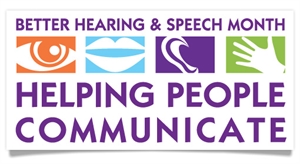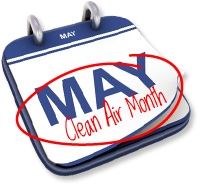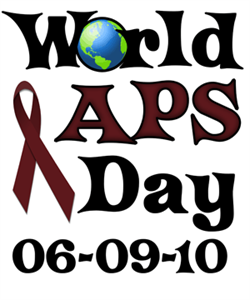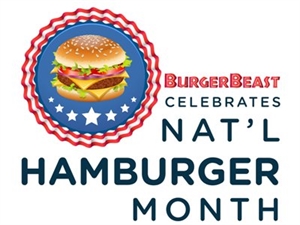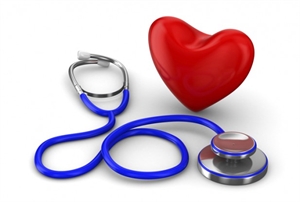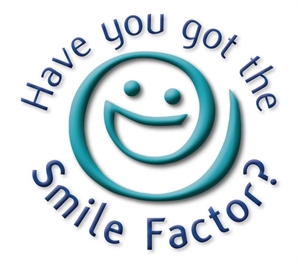National Osteoporosis Prevention Month on May, 2024: Where can I find a list of appreciation and awareness months?
May, 2024 is National Osteoporosis Prevention Month 2024. Treating Osteoporosis Do You Have Advanced Osteoporosis? Learn About a Treatment Option.
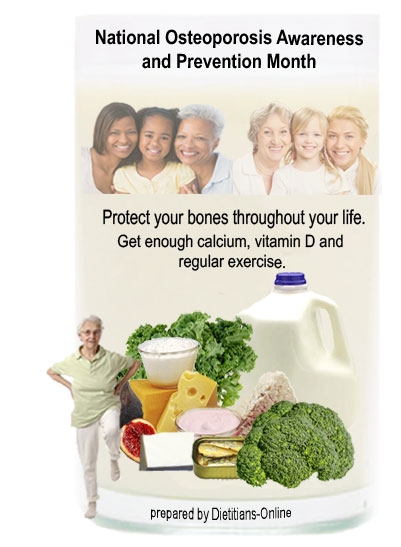
Full List of Awareness Dates
January
1-31 National Blood Donor Month
1-31 Cervical Cancer Awareness Month
1-31 Poison Prevention Awareness Month
1-31 Financial Wellness Month
4-11 Women's Self-Empowerment Week
7-11 National Thank Your Customers Week
17 Customer Service Day
21-27 Hunt For Happiness Week
25-31 NYC Restaurant Week
29 Chinese New Year
February
1-30 Marfan Syndrome Awareness Month
1-30 National Parent Leadership Month
1-30 Plant The Seeds Of Greatness Month
1-30 Library Lovers Month
1-30 Youth Leadership Month
1-30 National Weddings Month
1-30 Time Management Month
1-30 American Hear Month
1-30 Black History Month
1-7 Women's Heart Health Week
6 Ash Wednesday
6-13 National Patient Recognition Week
11-18 Heart Failure Awareness Week
12 Abraham Lincoln Birthday
12 NAACP Founded
14 Valentines Day
15 Susan B. Anthony Day
17 George Washingtons Birthday
18 Presidents' Day
March
1-30 American Red Cross Month
1-30 National Parent Leadership Month
1-30 Honor Society Awareness Month
1-30 Irish-American Heritage Month
1-30 National Athletic Training Month
1-30 National Caffeine Awareness Month
1-30 National Chronic Fatigue Syndrome Month
1-30 National Clean Up Your IRS Act Month
1-30 National Collision Awareness Month
1-30 National Ethics Awareness Month
1-30 National Eye Donor Month
1-30 National Kidney Month
1-30 National Multiple Sclerosis Education and Awareness Month
1-30 National Nutrition Month
1-30 National Social Work Month
1-30 National Womens History Month
1-30 National Write a Letter of Appreciation Week
1-30 Poison Prevention Awareness Month
1-30 Steroid Abuse Prevention Month
April
1-30 Alcohol Awareness Month
1-30 Cesarean Awareness Month
1-30 Cancer Control Month
1-30 Irritable Bowel Syndrome Awareness Month
1-30 Jazz Appreciation Month
1-30 National Autism Awareness Month
1-30 National Child Abuse Prevention Month
1-30 National Infant Immunization Month
1-30 National Occupational Therapy Month
1-30 National Oral Health Month
1-30 Women's Eye Health and Safety Month
3 Sexual Assault Awareness Month Day of Action
3 National Public Health Week (Climate Change)
4-10 Brain Tumor Action Week
5 Kick Butts Day (Tobacco-Free Kids)
6 National Alcohol Screening Day
7 World Health Day
11 National D.A.R.E. Day
11 World Parkinson's Day
14 Children With Alopecia Day (Alopecia Awareness)
16-20 Consumer Awareness Week
16 World Hemophilia Day
17 National Stress Awareness Day
20 Passover
19-26 National Infant Immunization Week
20-26 National Window Safety Week
21-28 Administrative Professionals Week
22 Earth Day
23 Administrative Professionals Day
25-30 National Oral, Head, and Neck Cancer Week
26 March for Babies (Walk America)
May
1-31 Haitian Heritage Month
1-31 American Stroke Month
1-31 Asian Pacific American Heritage Month
1-31 Awareness of Medical Orphans Month
1-31 Family Wellness Month
1-31 Better Hearing and Speech Month
1-31 Better Sleep Month (Stress/Insomnia)
1-31 Clean Air Month
1-31 Correct Posture Month
1-31 Fibromyalgia Education and Awareness Month
1-31 Healthy Vision Month
1-31 International Victorious Woman Month
1-31 Lyme Disease Awareness Month
1-31 Melanoma/Skin Cancer Detection and Prevention Month
1-31 Motorcycle Safety Month
1-31 National Arthritis Month
1-31 National Athsma and Allergy Awareness Month
1-31 National Cancer Research Month month
1-31 National Celiac Disease Awareness month
1-31 National Hepatitis Awareness Month
1-31 National High Blood Pressure Education Month
1-31 National Mental Health Month
1-31 National Neurofibromatosis Month
1-31 National Osteoporosis Awareness and Prevention Month
1-31 National Physical Fitness and Sports Month
1-31 National Preservation Month
1-31 National Shoes for Orphans Month
1-31 National Stroke Awareness Month
1-31 Older Americans Month (Senior Citizens Month)
1-31 Skin Cancer Awareness Month
1-31 Tuberous Sclerosis Awareness Month
1-31 Women's Health Care Month
1-31 Ultraviolet Awareness Month
1 May Day
1 Ascension Day
1 Law Day
1 Loyalty Day
1 World Athsma Day
1 National Anxiety Disorders Screening Day
3 National Day of Prayer
3 United Nations World Press Freedom Day
3 Kentucky Derby
4-10 Brain Tumor Action Week
4-10 Be Kind to Animals Week
5 Cinco de Mayo
8 World Red Cross Day
8 VE-Day Anniversary
10 World Lupus Day
11 Pentecost
11 Mother's Day
12-16 National Neuropathy Week
12 World Fair Trade Day
12 International CFS Awareness Day
12 National Women's Check-up Day
14-25 Cannes Film Festival
15 Peace Officer Memorial Day
18 HIV Vaccine Awareness Day
19-25 Recreation Water Illness Prevention Week
24 National Schizophrenia Awareness Day
26 Memori

Celiac Disease Awareness Month?
May as Celiac Awareness Month
By Beth Hillson, President, American Celiac Disease Alliance
In response to the question about May as Celiac Awareness month — the overwhelming majority of celiac organizations and all of the Celiac Research Centers in the United States recognize May as National Celiac Disease Awareness Month.
Internationally, the Association of European Coeliac Societies recognizes Celiac Disease in May and celiac events are held throughout the world to raise awareness.
(The association represents 26 countries of the EU - including Andorra, Austria, Belgium, Croatia, Czech Republic, Denmark, Finland, France, Germany, Greece, Hungary, Ireland, Italy, Luxembourg, Malta, Netherlands, Norway, Portugal, Romania, Russia, Slovakia, Slovenia, Spain, Sweden, Switzerland, and UK)
The May observance in the United States was chosen to coincide with our international colleagues. It was also done in recognition of the many other medical conditions related to celiac disease that are observed in May. Celiac disease is still relatively unknown and being able to draw connections between these medical conditions and celiac disease helps to elevate its importance and enhance awareness. Some of the other May health observances include:
* Digestive Diseases Awareness Month
* Digestive Diseases Week
* Food Allergy Awareness Month
* Food Allergy Week
* National Arthritis Month
* National Osteoporosis Awareness and Prevention Month
* Women’s Health Week and Women’s Health Check-up day
Organizations, Research Centers, and Companies supporting the May observance:
* Celiac Disease Foundation
* Gluten Intolerance Group
* Westchester Celiac Sprue Support Group
* American Celiac Disease Alliance
* National Foundation for Celiac Awareness
* University of Maryland Center for Celiac Research
* University of Chicago Celiac Disease Program
* Celiac Disease Center at Columbia University
* Wm. K. Warren Celiac Disease Research Center UC San Diego
* Bob & Ruth’s Gluten-Free Dining & Travel Club
* Ener-G Foods, Inc.
* Enjoy Life Brands™
* Foods by George
* Gluten-Free Living
* GlutenFree Passport™
* Glutino-USA
* Kimball Genetics
* Living Without
* Pamela’s Products
* Prometheus Laboratories, Inc.
* Savory Palate, Inc.
It’s worth noting that October is Breast Cancer Awareness Month. It is extremely difficult for any condition, to compete for attention at that time. And since recognition and attention are key to raising awareness, May is a better fit.
Congresswoman Nita Lowey (NY) introduced legislation in 2004, 2006, and again, this year (H.Con.Res. 70) which emphasizes the designation of May as National Celiac Disease Awareness Month. That legislation now has 29 cosponsors and more are expected once Congress returns later this month. I hope this helps clarify why May is supported and endorsed as National Celiac Disease Awareness Month.
Beth Hillson
President
American Celiac Disease Alliance
Email: info@americanceliac.org
Website: www.americanceliac.org
.....
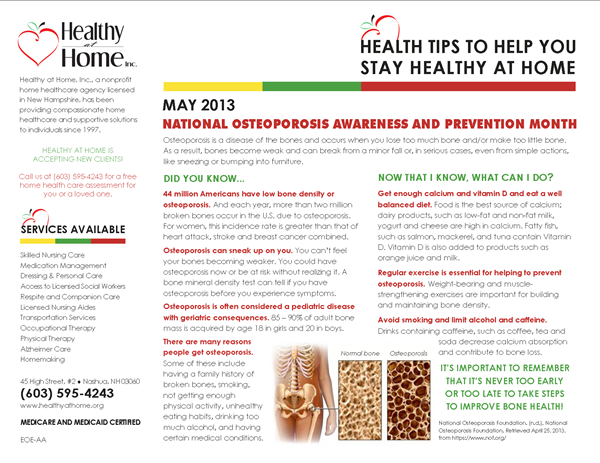
can anyone give me an alternative treatment for Evista?
What is the conventional treatment of osteoporosis?
I have recommended the conventional prescription drugs Actonel, Fosomax and Evista for osteoporosis treatment. They have different benefits and risks, however. Evista (raloxifene) might be suitable for some women while Actonel (risedronate sodium) or Fosamax (alendronate sodium) would be better for others. The choice has to be made on the basis of a woman's individual health profile and in consultation with her physician. Both Actonel and Fosamax seem to do a pretty good job of slowing menopausal bone loss. Fosamax's effects can be seen as soon as three months after treatment begins and continue as long as you are on the drug. Unfortunately, this drug can cause severe digestive reactions including irritation, inflammation, and ulceration of the esophagus, all of which may cause chest pain, heartburn or pain with swallowing.
Actonel is newer than Fosamax and works in much the same way. Research shows that it reduces the risk of new vertebral fractures by 65 percent within one year of treatment. I have tended to recommend it over Fosamax because patients tell me that the side effects are milder. The most common include stomach upset, diarrhea, headache and joint pain that may disappear as the body adjusts to the medication.
Evista (raloxifene) is an entirely different type of drug, a selective estrogen receptor modifier (SERM). These agents seem to provide the benefits of estrogen replacement without increasing breast cancer risk. In fact, Evista appears to reduce breast cancer risk as well as protect against osteoporosis. Side effects include hot flashes and vaginal discharge, dryness, or itching. We will know more about the benefits and risks of Evista when the National Cancer Institute completes a five year study comparing it to Tamoxifen, a drug used to treat breast cancer patients and recently shown to reduce the incidence of breast cancer among high risk women. Tamoxifen also protects against osteoporosis.
Fortunately, if you develop side effects to one of the available drugs, you can switch to another. Another drug receiving attention is strontium ranelate, a combination of the mineral strontium with ranelic acid. It has been licensed for sale in the UK and elsewhere in Europe for treatment of osteoporosis in postmenopausal women. A number of studies have shown that it can strengthen bone and reduce the risk of fractures, even among women 74 years of age or older when risks are highest. Strontium ranelate is not yet approved by the FDA for treatment or prevention of osteoporosis in the United States. It remains under study.
A final concern is that many women can't tolerate the side effects of the popular drugs Fosamax, Actonel and Boniva, which are all varieties of bisphosphonates. Irritation of the stomach and esophagus is the most common reported problem, but some oral surgeons and dentists have begun to report a more serious concern in a sub-group of their patients: jaw necrosis, the death of the jawbone. This warrants further study.
What therapies does Dr. Weil recommend for osteoporosis treatment or osteoporosis prevention?
Eat plenty of vegetables and fruit. Potassium, magnesium, vitamin C and beta carotene (found in fruits and vegetables) have been associated with higher total bone mass. A diet rich in vegetables and fruit and moderate in animal protein and grains may minimize the acid-ash residue of the diet.
Get enough calcium. This mineral is one of the primary constituents of bone, and adequate intakes are necessary for lifelong bone health. Choose non-fat dairy products such as yogurt and non-fat milk. Eat more sardines (with bones), dark green vegetables like collard greens, bok choy and broccoli, whole soy based products like tofu, and calcium-fortified soy milk and orange juice. Consider taking a calcium supplement if you are not eating at least three servings of dairy per day and/or calcium-fortified foods, if you are postmenopausal or if you have a family history of osteoporosis.
Eat magnesium-rich foods every day, including spinach, tofu, almonds, broccoli and lentils. Pumpkin seeds and sunflower seeds are also good sources of magnesium.
Eat vitamin K-rich foods every day. The best sources are green leafy vegetables (see the calcium-rich greens listed above), but most vegetables are good sources. Talk with your doctor about the effects of vitamin K if you are taking a blood-thinning medication.
Make sure you get enough vitamin D. I recommend supplementing with 1,000 IU daily for adults.
Decrease your sodium intake. Avoid salty processed foods and fast food. Don't salt your food before tasting it.
Limit caffeine intake.
Avoid alcohol or drink only in moderation.
Increase weight-bearing activities, such as walking, weight training and calisthenics. Try to do at least 30 minutes of exercise most days of the week.

